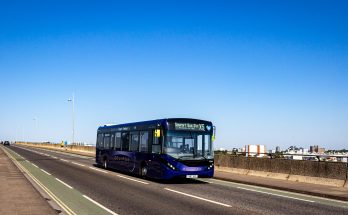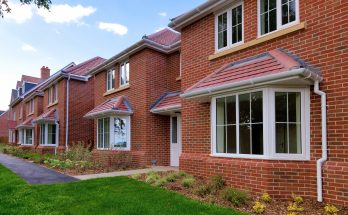Four pilots to improve the standard and quality of supported housing in England have been extended, backed by an additional £2.3 million.
- Supported housing pilots in Birmingham, Blackpool, Blackburn and Hull will be extended for a further 6 months
- Pilots will test new approaches to improve standards in supported housing – backed by an extra £2.3 million in funding
- Findings will inform future national policy on supported housing as part of the government’s commitment to build back better
Four pilots to improve the standard and quality of supported housing in England have been extended, backed by an additional £2.3 million, Minister for Housing Eddie Hughes announced today.
The pilots – in Birmingham, Hull, Blackpool, Bristol and Blackburn – were launched in October to test innovative approaches to drive up standards and ensure vulnerable people receive the tailored support they need – with findings to inform future national policy.
The pilots have been extended for another 6 months so that councils can build on their work so far, improving support for residents and value for money. The pilots will also strengthen enforcement in the sector, such as accommodation inspections, to crack down on the small number of landlords who provide poor-quality homes and inadequate support to the vulnerable people living there.
In supported housing, accommodation is provided alongside care, support or supervision to help people live as independently as possible in the community. The pilots are focused on short-term supported accommodation, which is often for vulnerable people such as those with experience of homelessness, mental health issues or domestic abuse, aiming to provide them with the skills to enter longer-term independent accommodation.
Examples of innovative new approaches include:
- Hull City Council are testing new ways of tackling Housing Benefit fraud to challenge landlords exploiting the system, moving into the sector to claim enhanced benefit payments while providing minimal support. This new approach includes taking legal action where necessary.
- Birmingham City Council are working with West Midlands Police to tackle criminal exploitation of vulnerable people in supported housing by organised crime groups, by sharing information with local neighbourhood policing teams.
- In Blackpool, the council is carrying out a review of its supported housing for domestic abuse victims and their children to ensure residents are receiving appropriate tailored support.
- Blackburn City Council are working with networks of other local councils across the North West to share and develop best practice in driving up standards.
Over the next 6 months the 4 councils will gather more data and evaluate their work so that the government can fully assess the impact of the pilots and introduce national changes.
“Supporting the most vulnerable people in our society is a priority for the government as we build back better. It is unacceptable that some vulnerable people are living in sub-standard supported accommodation, receiving insufficient help that does not meet their needs,” Eddie Hughes MP, Minister for Rough Sleeping and Housing said.
“We are determined to take action to drive up standards across the sector and by extending the pilots in Birmingham, Hull, Blackpool and Blackburn we can continue test innovative new approaches. From this, we will develop long-term nation-wide solutions, and ensure vulnerable people get high quality accommodation and the support they need,” Eddie Hughes added.
“The decision to extend these pilots reinforces our commitment to the most vulnerable people in our communities,” DWP Minister Baroness Stedman-Scott said. “Supported housing has the power to change lives and we will work with partners to improve standards and ensure this vital support is available for those who need it, when they need it most.”
Kate Henderson, Chief Executive of the National Housing Federation welcomed the news that government is extending these supported housing pilots. She recognised that they were an important step towards promoting high standards in supported housing – something which housing associations must be “absolutely committed to”.
Kate Henderson admitted that supported housing played a vital role in our society, ensuring that thousands of people have the home and support they need to live independent and healthy lives. “We must continue to invest in it and develop it, including building more supported housing to help more people access these desperately needed services,” she said.
The pilots sit alongside a National Statement of Expectation, published in October 2020, which sets out standards and quality expected by government in supported housing and best practice across the sector.
During the pandemic the government has worked closely with councils and the sector to offer vulnerable people safe accommodation and support. That work is ongoing and in January the government had successfully supported over 37,000 people, with 11,000 in emergency accommodation and 26,000 supported into longer-term settled accommodation.

